Dave Rawlings and Gillian Welch
We got tickets for their show in Providence, RI Yippee!
We got tickets for their show in Providence, RI Yippee!
Signs Your Church may benefit from an Interim Pastor
Originally by Lavern Brown, (online at pastors.com) edited for ELCA congregations by Bishop James Hazelwood
One of the questions I am often asked following the announcement of the departure or retirement by their pastor is as follows:
“Should we rush into finding a new pastor right away or should we have someone come and help us figure out what’s best for us?”
My answer is “it depends.” I do believe there are certain situations when I would encourage a congregation to consider a trained intentional interim, especially if the church meets any of these criteria:
1 The pastor is leaving after a lengthy tenure (experts differ over “lengthy tenure”, with figures from 8 to 25 years).
2 The church churns its pastors (a new one is called every few years).
3 The pastor leaves under duress (forced out) or due to inappropriate behavior or misconduct.
4 The church’s leaders can’t identify or agree on the church’s mission.
5 It has been three years since the last ministry evaluation (everything is reviewed for “mission fit” and amended as needed).
6 It is a “commuter church” (members are very different from those who live near the church).
7 Attendance has plateaued or declining (people coming in offset those who leave).
8 The church faces significant financial challenges.
Any church entering the transition between permanent pastors should pay careful and prayerful attention to these signs. If not there is a danger the leadership might simply set the congregation of a repeating pattern. While there are no guarantees in life, except death and taxes, a trained and qualified interim pastor can be a very helpful option for congregations in transition.
Listen to this NPR interview with Nadia Bolz-Webber, a Lutheran Pastor from Denver, CO
Thom Rainer has some ideas in his latest email update. He writes:
We hear from churches all over the country about how God is working in their churches and how they are seeing people come to new life in Christ. So on today’s episode, we discuss nine relational evangelism ideas that are working in churches.
Some highlights from today’s episode include:
The nine relational evangelism ideas that work are:
Yesterday, I completed my first century. That is riding 100 miles in one day. It's is the bicycling equivalent of running a marathon. It was exhausting, rewarding and this morning as I sit at my computer with minimal pain, I can honestly say, I'd do it again.
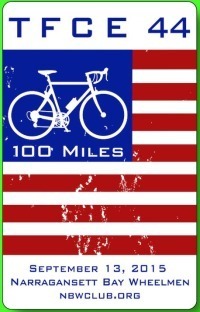 The event was sponsored by the Narragnsett Wheelmen (and women) Club. THey've been doing this for 44 years, and judging from the level of experience on the ride, it's clear there are people who are in amazing physical shape - some of them well into their 70's and 80's. This means there is hope for all of us as we age. We don't need to give in to the myth of age = slow decline.
The event was sponsored by the Narragnsett Wheelmen (and women) Club. THey've been doing this for 44 years, and judging from the level of experience on the ride, it's clear there are people who are in amazing physical shape - some of them well into their 70's and 80's. This means there is hope for all of us as we age. We don't need to give in to the myth of age = slow decline.
I will admit that in the days leading up to this event, I became quite nervous. I suppose that's only natrual - a reminder that when we take on new things, we get uncomfortable. Change makes us nervous. But, I prepared my bike and loaded the car the night before.
The real preparation began last December 16, when a stranger told me about two books that have become my bibles (in addition to the Bible). They are Younger next Year and Thinner This Year by Chris Crowley. His newest book on Exercise will be released this December, just in time for Christmas gifts. I spent the winter working out and eating right. It's not complicated, but it does require discipline. Then in April I bought a bicycle cause I knew I'd get bored of the treadmill at the gym, and I can't run anymore due to my knees. (Stemming from some old basketball injuries and, well, just the nature of being a tall person) The bike I got from Lennard Zinn, who makes bikes for big people. I did this cause the local bike shops looked at me and said, "ah, well, we could special order something."
The ride was a challenge. The first 31 miles went pretty smooth for me, and I was feeling good and humming a long. The next leg took me to mile 48. I was still doing fine. These markers are the locations of the rest stops, where they have facilities, water, sports drinks, and carbohydrates. It's a refueling station. The next leg really broke me. Around mile 60 I just ran out of gas, and fatgue became the name of the game. I found myself creeping along and counting the miles to the next stop, which was at mile 72. Here I collapsed. Exhausted. I ate, drank and took a short nap. Yes, I dosed off for a few minutes. I needed that.
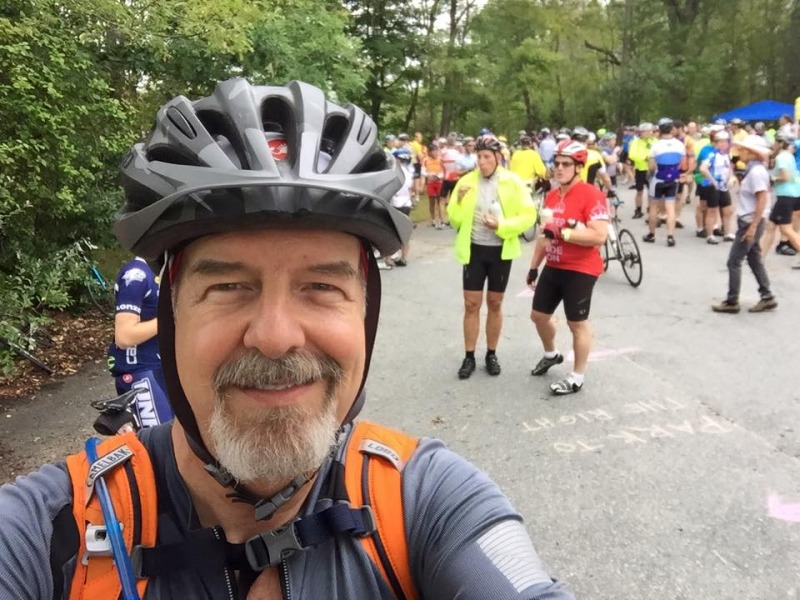
Mile 31 - Feeling pretty good
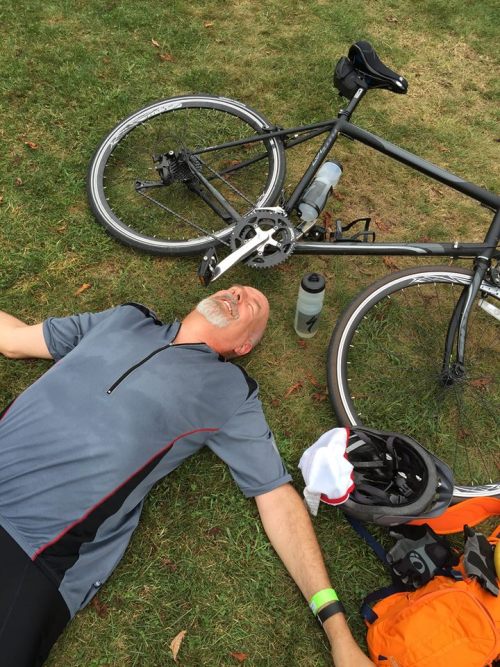
Mile 72 - I may be smiling for this posed photo, but I was exhausted.
The last 29.5 miles were a range of painful peddling to comfortable crusing and humming along. You know the end is near, and despite the temptation of the various ice cream shops with cyclists stopped at, you just keep going. I paused around mile 81 after a big hill. (Heck, any hill at this point in the ride feels big) I could see the clouds rolling in from the west, and that made me aware of the predicted rain, so I pushed on, finally finishing the event.
Kerry and her brother Bill, along with Lisa (photographer) were their to greet me. I'm sured they'd been waiting for some time. Bill competes in Ironman Triatholons. The ride was done, I get a funny T-shirt and a regrigerator magnet. (Bet you are jealous)
Mostly what I have is a marker in my quest to be in better physical shape, taking care of this gift of life, and living longer and stronger. That's the best reward.
This song has over 3 million hits worldwide. What does this tell us about one way of connecting with younger generations?
I've created an Ask Thank Tell Resource page on Facebook.
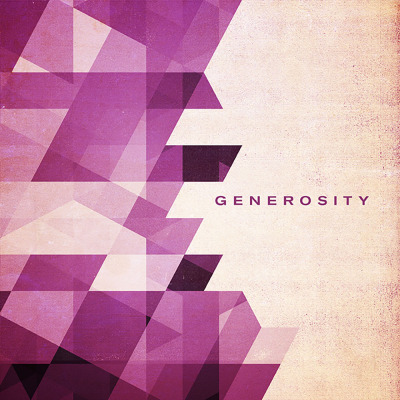
https://www.facebook.com/askthanktell
Go there, click like, and you will regularly see idea, challenges.
And, here is an audio recording of my Crazy Stewardship Presentation at Zion, Pittsfield, MA
http://bishop.nesynod.org/crazystewardshiptalk.mp3
A public thank you to Charles Lane who wrote the best book on Congregational Stewardship EVER!
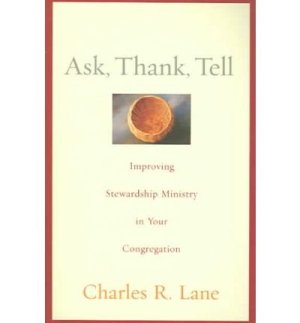
I've been working through a couple of different reads. Here's my list as summer winds down.
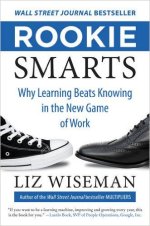 Liz has done a bunch of research to suggest that experience may not be all its cracked up to be. Remember the enrgy you had when you didn't know what you were doing.
Liz has done a bunch of research to suggest that experience may not be all its cracked up to be. Remember the enrgy you had when you didn't know what you were doing.
Liz suggests that those of us who are a bit older and experienced might benefit from reclaiming our rookie days. Good stuff.
Liz spoke at the Willow Creek Global Leadership Summit, and you can see the notes of her talk here.
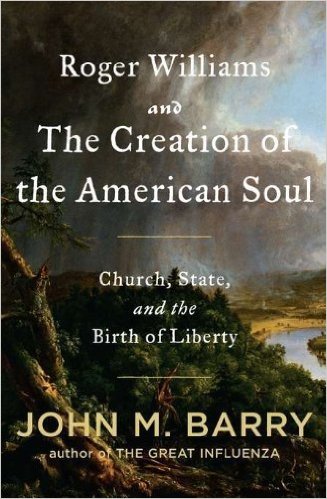 I borrowed this book from my friend Glen Ramsay. It's sitting there gazing at me from the nightstand, saying, "open me and read." I've got to get to this one.
I borrowed this book from my friend Glen Ramsay. It's sitting there gazing at me from the nightstand, saying, "open me and read." I've got to get to this one.
Amazon says: A revelatory look at how Roger Williams shaped the nature of religion,political power and individual rights in America. Acclaimed historian John M. Barry explores the development of the fundamental ideas through the story of the man who was the first to link religious freedom to individual liberty, and who created in America the first Government and society on earth informed by those beliefs. The story is essential to the continuing debate over how we define the role of religion and political power in modern American life.
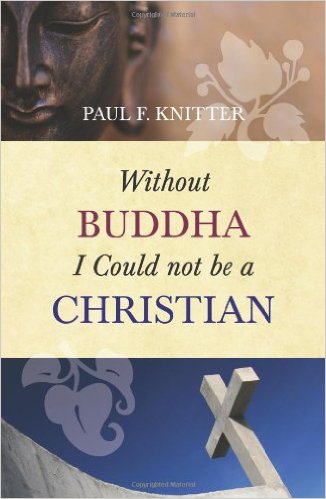 I've read a number of different Buddhist-Christian dialgue books over the years. Honestly, Buddhism is really hard for westerner's to get our head around. Most of the books in this field are highly intelectual and written for the graduate level college course.
I've read a number of different Buddhist-Christian dialgue books over the years. Honestly, Buddhism is really hard for westerner's to get our head around. Most of the books in this field are highly intelectual and written for the graduate level college course.
In some ways, this one is no different except, that Paul Knitter frequently breaks away from the rhetoric and talks openly and honestly about how a particular way of thinking interacts with his Christian faith. I'm finding his honesty very insightful.
I like this book, and it's helping me embrace some challenging Christian doctrines.
You'll be challenged in this read, so don't read it if you are settled in your Christian faith and don't want to be challenged.
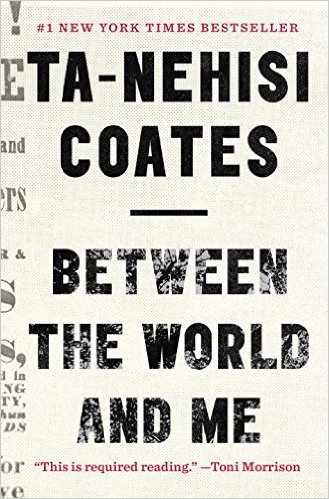 As I wroter last week on my facebook page: On my summer reading list, among a stack of books is now this one (on my kindle) If a book is too much for you then take in the article in the Atlantic (http://www.theatlantic.com/…/the-case-for-reparatio…/361631/ ) from last June. The book and article are a helpful perspective on America's long sorted history with race relations. This is a challenging read. Not in it's difficulty but in the way it will challenge your perspective. But, I believe it's an important subject for all of us to wrestle.
As I wroter last week on my facebook page: On my summer reading list, among a stack of books is now this one (on my kindle) If a book is too much for you then take in the article in the Atlantic (http://www.theatlantic.com/…/the-case-for-reparatio…/361631/ ) from last June. The book and article are a helpful perspective on America's long sorted history with race relations. This is a challenging read. Not in it's difficulty but in the way it will challenge your perspective. But, I believe it's an important subject for all of us to wrestle.
I know that St. Matthew Lutheran in Avon, CT have selected this book as the study focus for this fall. Good for them. Maybe yu'll consider diving in as well.
OK Last one, which I just finished.
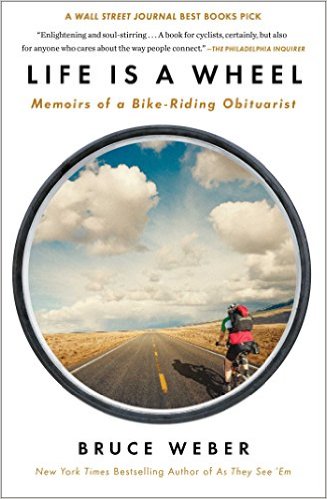 Bruce Weber is a fine writer. This is the record of his 2011 bicycle ride across america. While it's about his journey, it's also about life and death, and romance, love lost, and the way people touch our lives.
Bruce Weber is a fine writer. This is the record of his 2011 bicycle ride across america. While it's about his journey, it's also about life and death, and romance, love lost, and the way people touch our lives.
Bruce is currently the obituarist for the New York Times, so he has this wonderful way of telling a story from the perspective of, well, it just might be the last.
It's a light read, and cyclist or non will enjoy it equally.
Steve Dumas, Rick Hoyme and I just completed a 2,000 mile plus journey across portions of America and Canada on our motorcycles. All for the Walk for Water campaign of the ELCA World Hunger Appeal that was an emphasis of the ELCA Youth gathering in Detroit. Our journey took us from Rhode Island to Detroit on the US side, and we returned through Canada, and came hone through the Adirondack Mountains, Vermont and New Hampshire.
In Cleveland, OH, my son and his wife perfectly timed our visit by arranging to give birth to their baby, Asa Glen Hazelwood. This would now make Lisa and I grandparents.
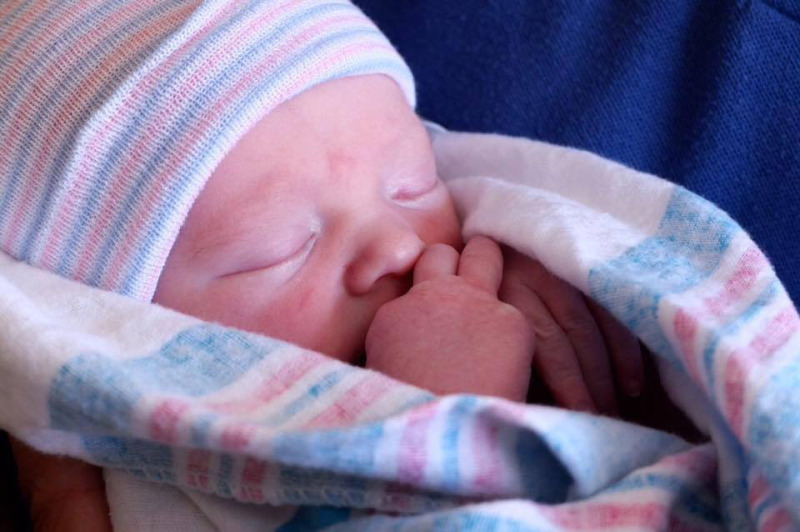

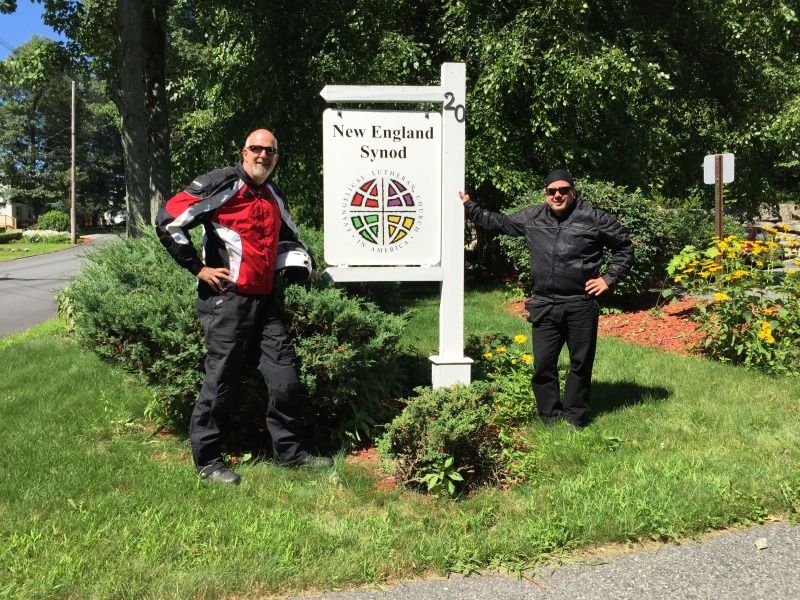
Below is a 25 minute interview with Pr. Scott Howard regarding a creative way of learning, just how welcoming is your church. The audi is a little weak, so you'll have to adjust the volume. The idea is brilliant, and this video is worth recreating in your own setting. Andy Merritt conducted the interview.
 I'm reading a fascinating book titled: Blindspot: Hidden Biases of Good People by Mahzarin Banaji and Anthony Greenwald. These are some wicked smart Harvard University researchers in the field of psychology and social relations. My wife, Lisa, suggested the book while we were in the midst of dinner time conversations about race relations in America following the recent massacre in Charleston, SC. She had heard this NPR report. I was intrigued, and the book arrived last week.
I'm reading a fascinating book titled: Blindspot: Hidden Biases of Good People by Mahzarin Banaji and Anthony Greenwald. These are some wicked smart Harvard University researchers in the field of psychology and social relations. My wife, Lisa, suggested the book while we were in the midst of dinner time conversations about race relations in America following the recent massacre in Charleston, SC. She had heard this NPR report. I was intrigued, and the book arrived last week.
It's a different approach to the work of racial reconciliation, but an important one in my view. Here is a paragraph from the opening chapter.
"Evidence from the second half of the twentieth century has made it increasingly plausible that human irrationality is severly limited. Our task, in this book, is to follow this idea of the bounds on rationality into a particular place - where the questions concern how we judge ourselves, other individuals and the social collectives to which they and we belong."
While the first sentence shouldn't surprise anyone who has followed public discourse in recent years, it's the second sentence that tells you where the book is going.
I'm in the middle of the book, so I can't give a full review. So far, it's a bit heavy on vignettes of various psychological studies showing how human beings have blindspots or biases. The evidence is pretty strong. The frustrating piece is that we don't know we have some of these blindspots - we can't see them. The connection to race relations is toward the end of the book, accoridng to the table of contents, so you have to be patient before the connection is made in that area.
It's a useful resource for me, as I try to figure out ways of engaging a broader audience around the subject of racial reconciliation. Most people who read this blog, think of themselves as good people. But, the truth of the matter is that we all bring assumptions and bias to our decisions. In my view, the more we can learn about how our self deception contributes to racial misunderstanding, the better off our nation will be.
"Christianity stands or falls with its revolutionary protest against violence arbitrariness, and pride of power, and with its plea for the weak. Christians are doing too little to make these points clear rather than too much. Christendom adjusts itself far too easily to the worship of power. Christians should give more offense, shock the world far more, than they are doing now."
Dietrich Bonhoeffer

July 24, 7 p.m.
St. John's Lutheran Church
844 Newfield Ave.
Stamford, Conn.
Earlier that day, Bishop Younan will gather with clergy from 10:30 a.m. to 1 p.m. at Emanuel Lutheran Church (60 Church Street, Manchester, Conn.). Clergy who would like to attend should contact Rev. Duane Peterson.
The Rt. Rev. Dr. Munib A. Younan was consecrated as bishop - the third Palestinian to hold the office - on January 5, 1998, at the Evangelical Lutheran Church of the Redeemer in Jerusalem in the presence of religious and political leaders from many nations. He was educated in Palestine and Finland and has been active in numerous faith organizations since his ordination in 1976, such as the Middle East Council of Churches (MECC), The Lutheran World Federation (LWF) and the Fellowship of the Middle East Evangelical Churches (FMEEC). The bishop was the first to translate the Augsburg Confession into Arabic. He is an active member of various ecumenical and interfaith dialogue initiatives in Jerusalem that he helped found.
In July 2010, he was elected president of the Lutheran World Federation (LWF), a global communion of Christian churches with 145 member churches in 79 countries representing more than 70 million Christians. He is a recent past president of FMEEC and provides leadership for the ecumenical Patriarchs and Heads of Local Christian Churches in Jerusalem group as well as for the Council of Religious Institutions in the Holy Land (CRIHL), comprised of leaders of Jerusalem's Jewish, Muslim and Christian communities.
My five-year old grandson asked me how old I was. When I told him I would turn 60 in a few weeks, he responded: “I didn’t realize people got that old.”
Indeed, in 60 years, like any of us who have lived a few years, I have seen change, lots of change. And I am seeing change in local congregations faster than any time in my lifetime. One of the most disheartening changes I am seeing is the declining attendance in a majority of churches. I am asked repeatedly to diagnose and help with these challenges.
Though addressing the issue of declining attendance cannot be covered in a brief blog post, I hope it will be helpful to share some high-level perspectives. See if any of these seven reasons apply to your church.
Decline in church attendance cannot be defined in seven simple statements. But these reasons are at least broad explanations of what is taking place in many of our congregations. I would love to get feedback from you on these issues.
The post Seven Key Reasons Your Church Attendance May Be Declining appeared first on ThomRainer.com.
The long hard work of racial reconciliation is exactly that, long, and hard and work. But, it is work that we must do.
What is it about America that our long national nightmare, the legacy of slavery, the civil war and Jim Crow continues to haunt our national soul? Yes, other nations have their legacies, but our calling is to look at our own. I believe this work to be both an inward journey, as well as an outward one. We are called, each of us, whether we call ourselves Christian or not, to explore the internal workings of bias, hatred, racism, dislike for the ‘other’, suspicion for those who are different. We all have them. That soul work is deep work that we are each called to explore, understand and heal. We are equally called to exercise the external work of ending racism and challenging the systems and causes that perpetuate racism.
In the video above, I am speaking without a script. It is my admittedly raw attempt to help begin not only a conversation, but a time of learning. A time to begin to understand what it must be like to live in this country as a person of color. I begin with the parable of the Good Samaritan because it is so widely known, and yet, not everyone knows how radical the message. Jesus tells a story in which the hero is the ‘other’. I have re-told this parable in other settings, and gotten in trouble. In the 1980’s I retold this parable in a worship setting and made the heroic character, the Good Soviet Communist. In the early 2000’s, I retold this parable as the Parable of the Good Islamist. Clarence Jordan practiced this form of re-telling the gospels better than any. “By rewriting the gospel in a southern idiom, Jordan placed the ordinary reader in the midst of the action and flow of the narrative, thereby making the reader a “participant” rather than an observer. In this way, Jordan sought to recreate the Jesus event and help southerners experience the God Movement as news rather than history. A good example of this practice is Jordan’s translation of the parable of the Good Samaritan. By replacing Samaritan with black man, Jordan recaptures the original setting of the good “outcast,” which potentially becomes world reversing. In so doing, Jordan challenges cultural images and mythic models of the good person. Through the work of Jesus the rebel, myths are redescribed and thus rewritten. Now the good person is the person who lives with unlimited love and can stand against cultural stereotypes that demean and denigrate.” (Frederick Downing SBL)
My attempt to begin this conversation with a biblical passage is intentional, however clumsy I have described it in the video. It is my intention that we call on the vast resources of God’s Word to help and guide us forward. There are many resources, and we should make use of those that will be helpful, but I believe we must define this conversation with biblical language and imagery.
I have no doubt that the conversation will be challenging, and we will say clumsy, awkward and stupid things. I know I will, I know I have. We are all fallen and broken people, and we do not have the resources on our own to do this work. But, by God’s grace, we have the capacity to live differently, to affect change, and to help heal the church.
May God grant us the courage and wisdom to do what will make a real difference. It will be long-term, and it is also urgent work—the most difficult and necessary combination. But with Christ patient and persistent voice, we will be lead forward.
The author and pastor talks about his new book THe Digital Cathedral
“The basic idea is, in order to love God, you have to love your fellow human beings, and you have to love and care for the rest of creation,” said Vincent Miller, who holds a chair in Catholic theology and culture at the University of Dayton, a Catholic college in Ohio. “It gives Francis a very traditional basis to argue for the inclusion of environmental concern at the center of Christian faith.”
Advertisement
Continue reading the main story
He added: “Critics will say the church can’t teach policy, the church can’t teach politics. And Francis is saying, ‘No, these things are at the core of the church’s teaching.’”